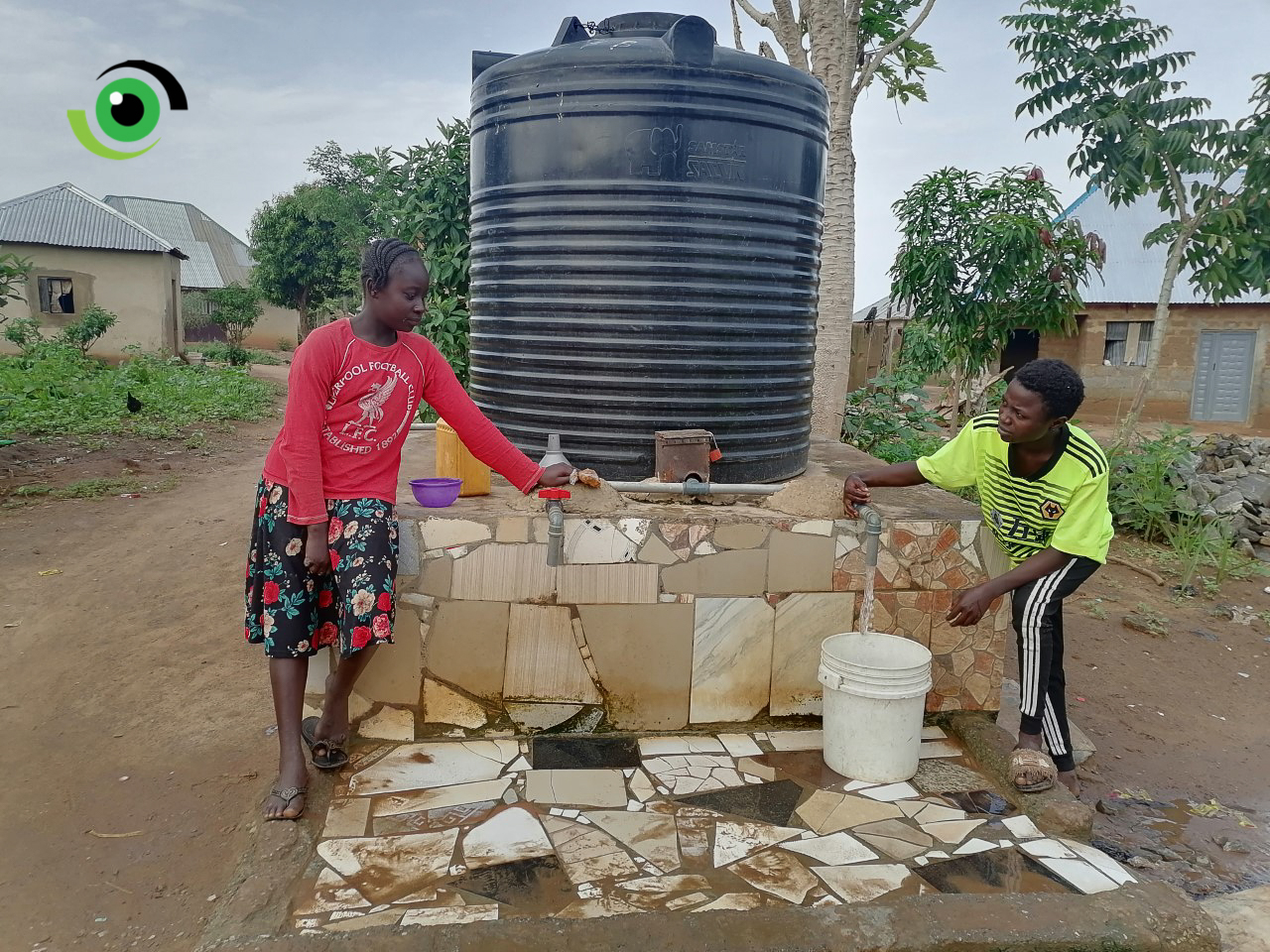Yimitu is a low-income community on the outskirts of Abuja, Nigeria’s capital city. A significant part of its population is made up of people displaced from Northeast Nigeria by the Lake Chad conflict. An estimated three thousand people live there, but no census has been carried out in the community. They are predominantly farmers, small business owners and unskilled workers. Despite its proximity to the nation’s capital, Yimitu is a community that lacks basic infrastructure. There is no electricity except what is privately generated. Water is scarce, and a significant number of residents live in houses without toilets.
According to Alayayi Dauda, acting chief of Yimitu Community, Abuja Municipal Area Council (AMAC) and some Non-Governmental Organisations (NGO) provided boreholes in the past, but some have gone bad and now, they rely on privately owned boreholes. There are conflicting reports about whether there are 3, 4 or 5 working boreholes in the community. However, they all agree that water is scarce.
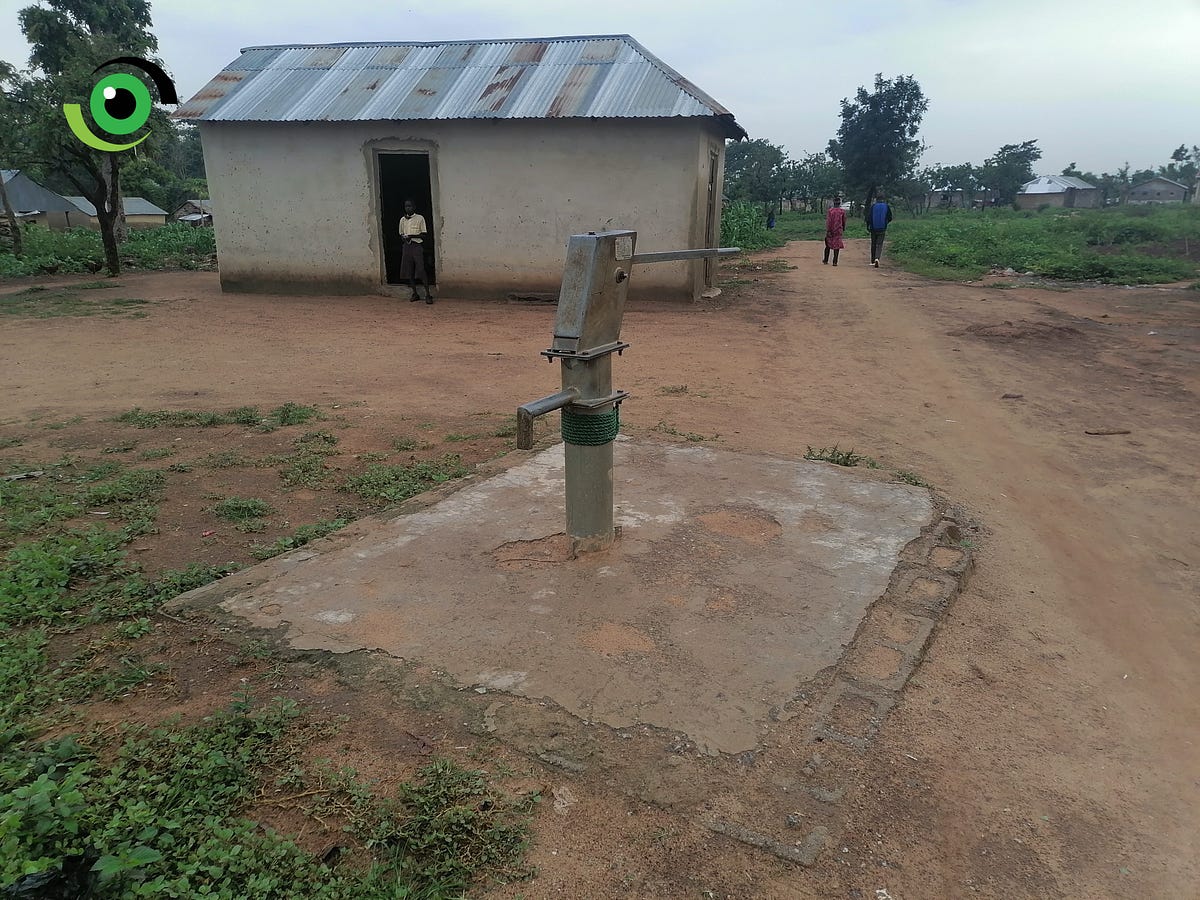
This scarcity is caused by several factors. In addition to the inadequate number of boreholes, most of the residents can’t afford to buy water. A 25kg gallon of water costs about 25 naira and Rebecca, a stay-at-home mom who spends 100 naira on water daily, said, “As na raining season, we dey put our rubber for outside when rain dey fall. If no be so, na to go buy before we get water.” Bulus Useni, a farmer who has lived in the community for 10 years has a family of nine and said he spends about 500 naira on water daily.
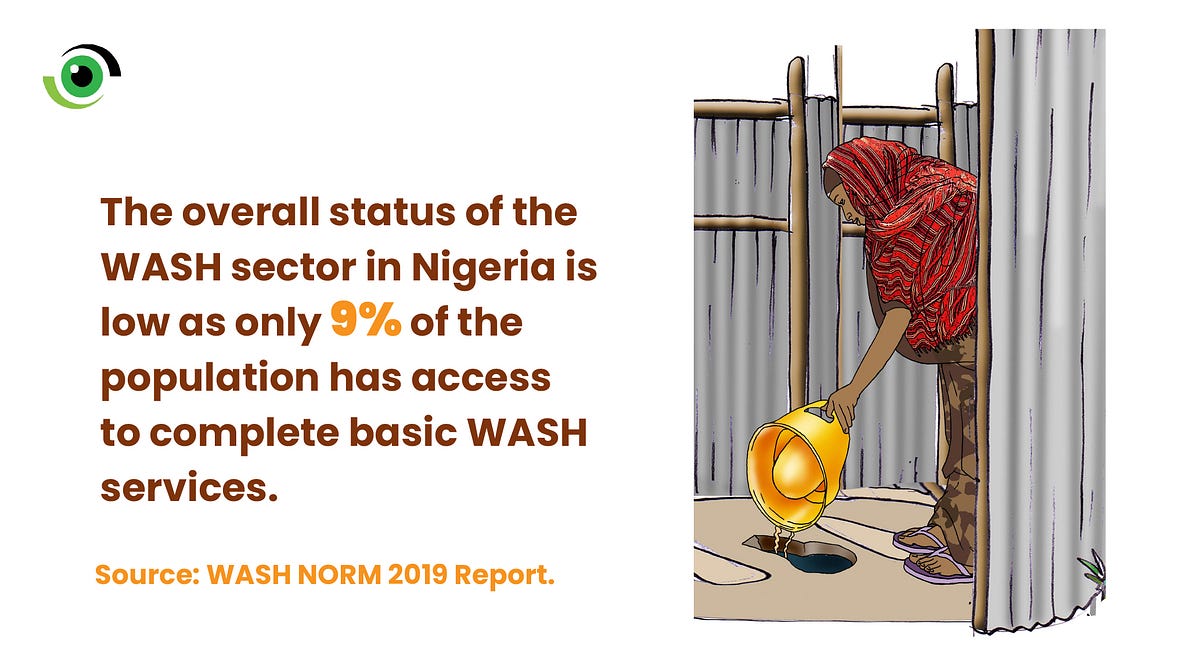
The lack of access to water can have far-reaching and ill-fated consequences. Access to safe water, sanitation, and hygiene (WASH) services is a key contributing factor to protecting the health, security, and economic potential of individuals and communities around the world. There are many communities in Nigeria that lack access to adequate WASH services. The second edition of the Water, Sanitation, Hygiene National Outcome Routine Mapping 2019 (WASH NORM) report, an annual survey of the Federal Ministry of Water Resources (FMWR) that provides regular pointers for measuring progress in the WASH sector, revealed that the overall status of the WASH sector in Nigeria is low as only 9% of the population has access to complete basic WASH services.
Dr. Tedros Adhanom Ghebreyesus, Director-General of WHO, pointed out that, “Safe water, sanitation and hygiene at home should not be a privilege of only those who are rich or live in urban centers. These are some of the most basic requirements for human health, and all countries have a responsibility to ensure that everyone can access them.”
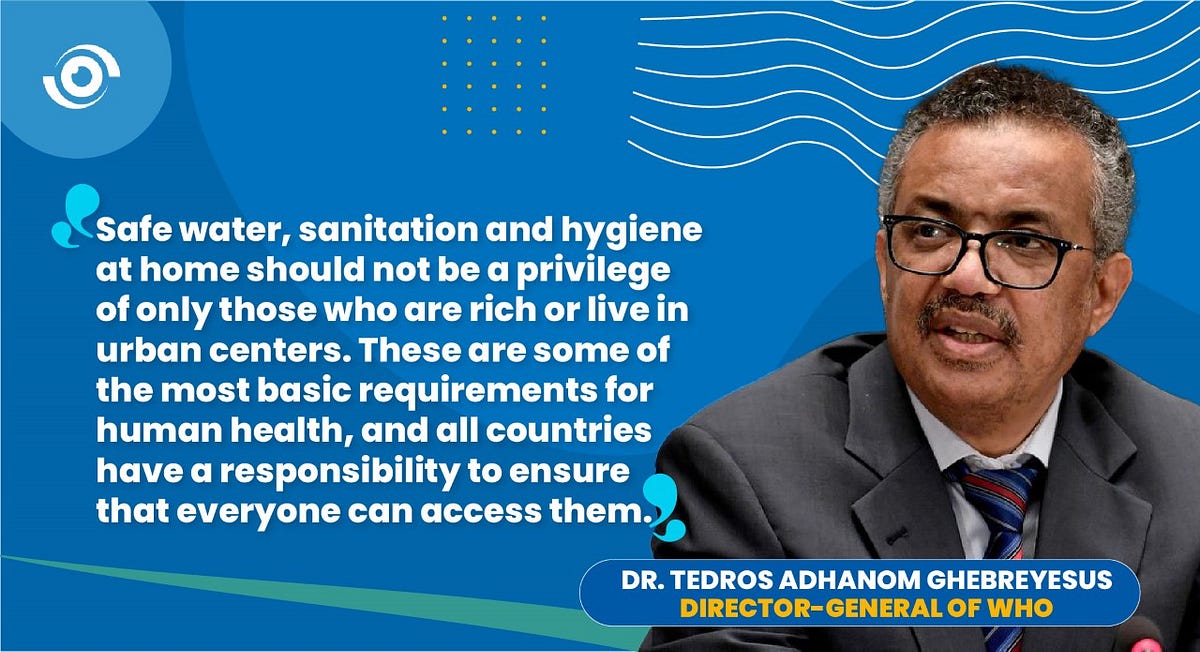
Resources are scarce and needs infinite, and in situations where there are conflicting needs, people tend to shed what they consider to be extra baggage to provide for what they consider as more important. Sadly, one extra baggage in scarcity is menstruation. Women in Yimitu understand the importance of menstrual hygiene but there is a huge disparity between what they know and what they practice. One reason is, when you are a low-income earner who spends 500 naira daily on water which must meet the regular needs of a family of 8, cleaning yourself as often as is required when you are menstruating might be seen as a luxury. This ought not to be as WASH plays a critical role in ensuring women worldwide can practice safe and dignified menstruation.
The residents of Yimitu Community are looking to the government for help. It is every government’s responsibility to ensure that citizens have access to basic infrastructure. So, the collective cry is, “Make government help us make we get water.” Although the government is not to be absolved of its responsibility, the question of who else can help in addition to the government becomes imperative.
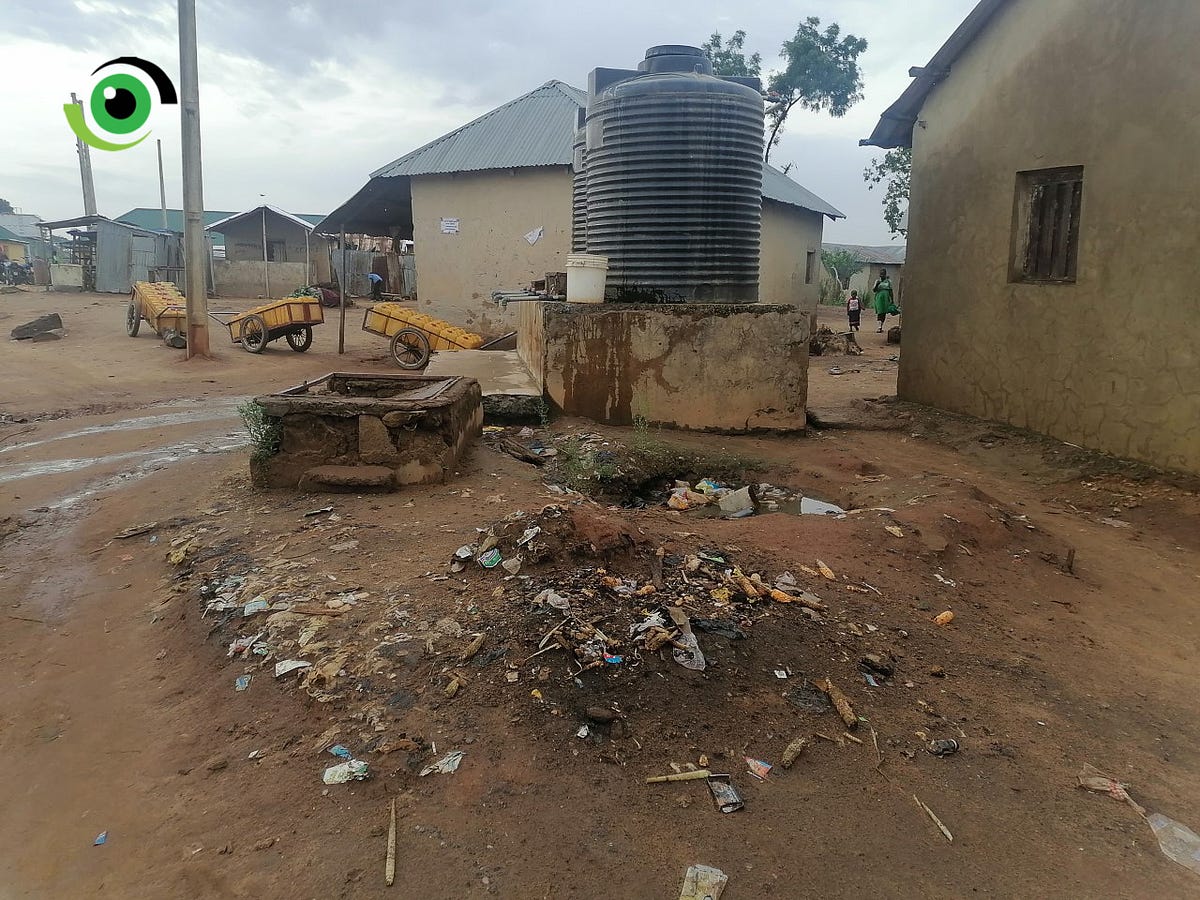
Leveraging the Private Sector and Non-Profit “Villages” for Development
Two groups come to mind; the private sector and non-governmental organisations. Private sector companies often engage in Corporate Social Responsibility (CSR) initiatives that are meant to support communities by contributing charitable funds to several causes. This is a practice that is growing, as evidenced by the increase in Foundations such as the MTN Foundation and Dangote Foundation. We have seen targeted projects by organisations, including Shell Nigeria and its JV Partners Vision First Initiative and the National Breweries Plc involvement in bringing one meal a day to school children in partnership with PACIEH, an NGO.
There are examples of smaller companies taking initiative to solve problems. In 2019, Prince Ebeano Supermarket constructed a 3.2-kilometer road in Lokogoma-Gudu, Abuja, providing motorists in the Lokogoma area with a much-needed alternative route. Soon however, a new problem arose. There was constant traffic build-up at the traffic light, which caused traffic jams daily. To ease this build-up, Energy Services Limited, a new gas company in the area, stepped in and as part of a ‘Traffic Decongestion Route project’ constructed access roads. This shows that private companies have the power to make direct impact on the development of communities.
The other group that can be leveraged for development are Non-Governmental Organisations (NGOs), many of whom are already in place to provide support to communities. In 2019, Nigeria Health Watch’s Director of Policy and Advocacy, Dr Ifeanyi Nsofor, conceived the Health Equity for FCT indigenes project as a Fellow of the 2019 Atlantic Fellowship for Health Equity at The George Washington University, USA. The project was designed to bring attention to the challenges faced by Abuja’s indigene communities. Its aim was to bring these issues to the attention of non-governmental and community-based organisations already working in the FCT to adopt and address.
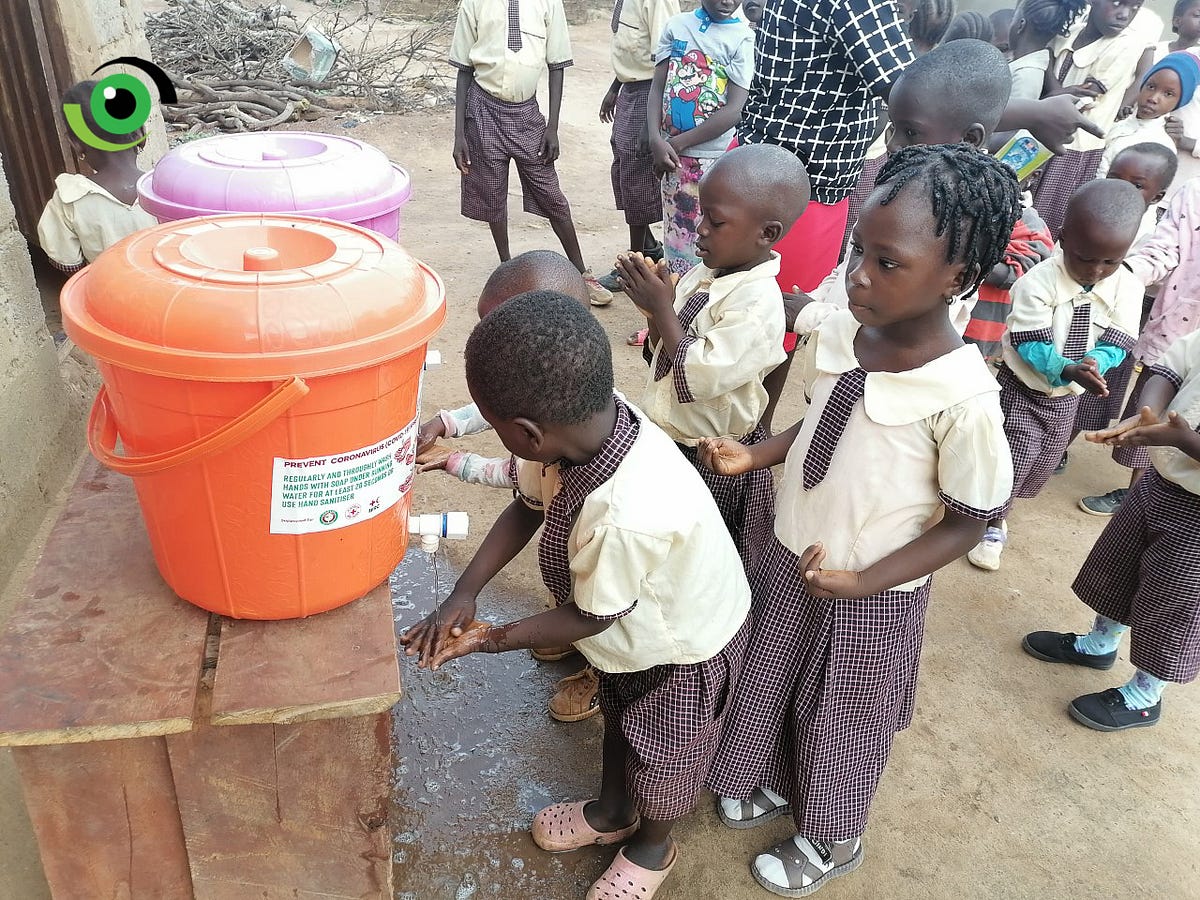
During the project, he and his team visited Sauka, a community in Waru District in Abuja Municipal Area Council of the FCT, which is quite like Yimitu. The community members were dealing with a lot, including water scarcity. He tweeted about his experience in the community and this tweet yielded results as two organisations, Centre for Family Health Initiative and Vaccine Network for Disease Control, partnered with the FCT public health department to sensitise the community on the danger of using contaminated water and how best to treat water before use. They also made plans to curtail waterborne diseases and treat people affected. Later, an international organisation, Riders for Health, decided to drill boreholes for the community, helping to alleviate the water scarcity they faced.
The WASH NORM report reveals that the constraints associated with the WASH enabling environment include weak governance, coordination, technical capacities, policy and institutional arrangements, and budgeting and financial allocations to the WASH sector. These must be overcome for any meaningful impact to be made.
From the examples above, if private sector, non-governmental and community-based organisations already working in the FCT partner with the government and with each other to address constraints associated with creating a WASH enabling environment, considerable progress will be made in expanding access to water and sanitation services in the nation’s capital, and across Nigeria.


